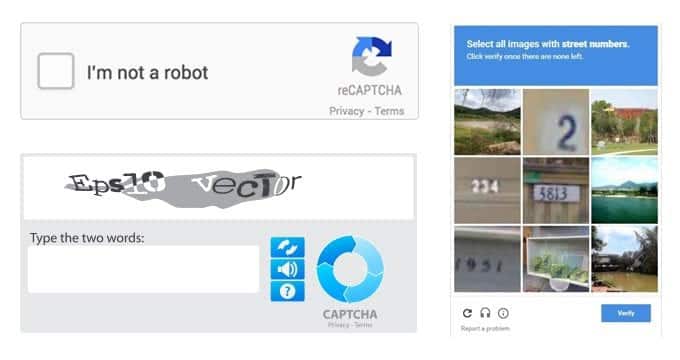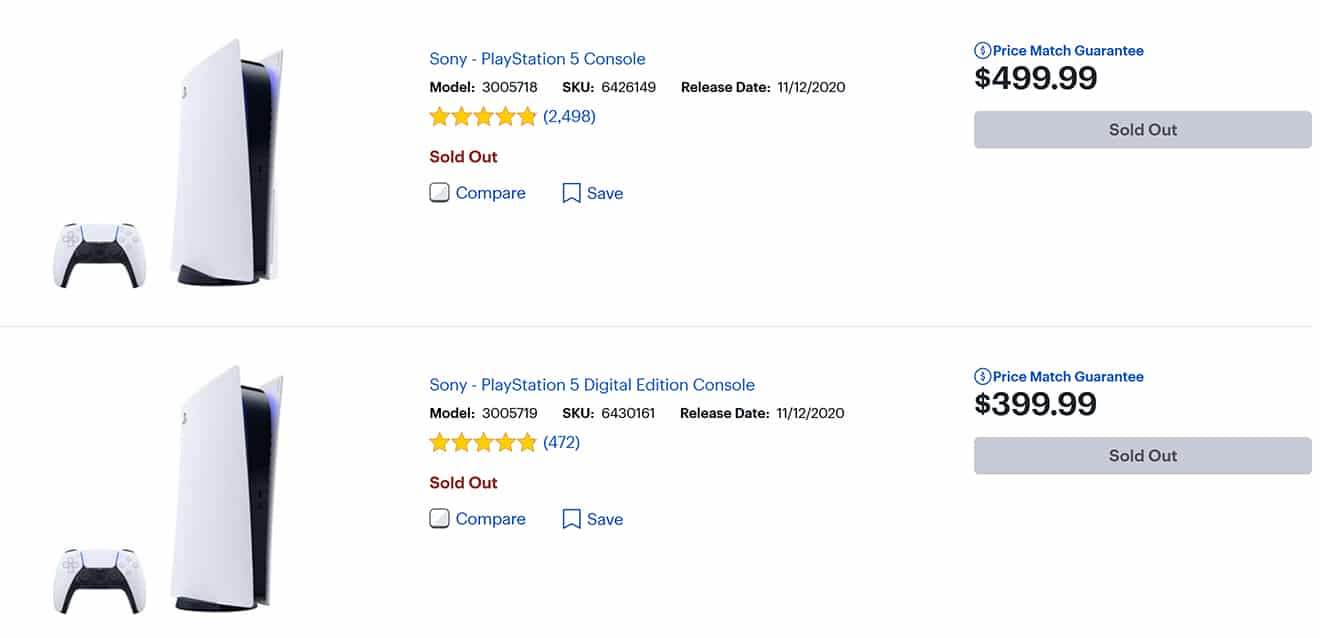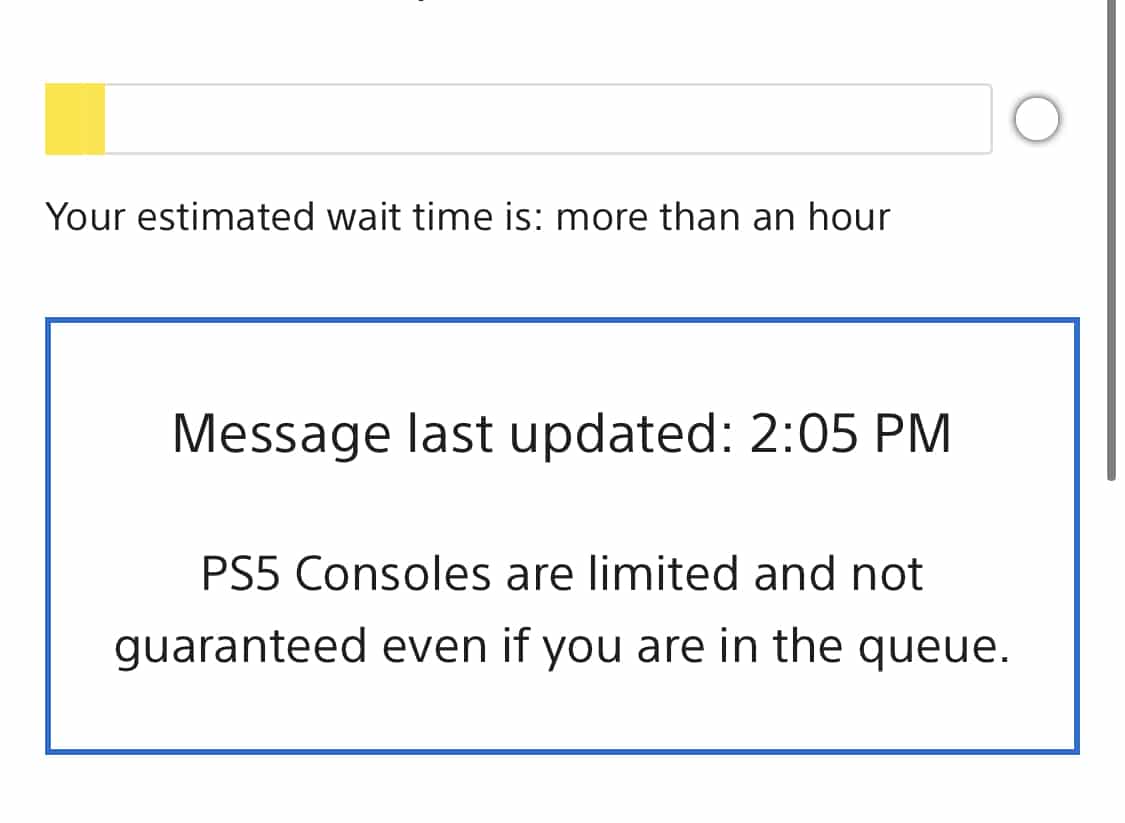PlayStation 5 Scalpers Are Using Bots to Siphon Supply: Can the Law Stop Bots?
In my virtually recent column, I discussed ongoing frustrations with PlayStation 5 scalpers, explained why scalping is legal, and reviewed a few options — business, ratified, and of import — that can be in use to reduce Beaver State eliminate scalping. What I didn't realize at the time — and what has become obvious in the disjunctive weeks — is that the scalper problem is in truth a bot problem. We'Ra not dealing with quality scalpers WHO waitress for a restock and attempt to go through a manual of arms online checkout march with everyone other. As an alternative, we're dealing with computer programs that monitor websites 24/7 and consumption automated scripts to purchase units as soon Eastern Samoa they become available.
These bots don't motive to manually recharge a web page, father't need to enter any billing or shipping information, and don't require to click to confirm their order. It should thus come as no surprise that bots can complete multiple purchases before consumers even know that there has been a restock. Indeed, reports suggest that bot-aided scalpers take recently obtained and resold thousands of PS5 units.
That brings us to the question of the hour — what terminate atomic number 4 done about bot scalpers? As it turns out, much, as there is a wide array of some legal and technical solutions that can constitute used to root out the flagellate of bot scalpers.

Technical Solutions to Bots
We can pop with the technical solutions, since those are the most straightforward. There are a handful of easily implemented technical foul solutions that retailers could consumption to prevent bot sales. Among strange things, retailers seat install CAPTCHAs so that buyers hind end prove they are human, can impose a one-unit-per-IP dea limit on purchases, and can use a queue to exert more control over WHO fire enter their online storefront.
My ad hominem favorite maneuver, however, would be for retailers to use dynamic forms that make it harder for bots to correctly navigate the web site. Bots may be fast, but they're also dense — they ut exactly as they are instructed and don't (yet) incorporate AI. Sol if a bot is instructed to use an "attention deficit disorder to cart" clit located in a particular part of the webpage, and that button is moved operating room renamed, the bot will fail. Self-propelling forms can enable that kind of movement or renaming.
The technical solutions come with two significant caveats. First, each of the solutions depends along retailers caring decent to invest clip and resources to fight the bots. Retailers control their websites, thus any change has to start with them. Intermediate, any technical root would only be temporary. For each measure used to foreclose bots, there is a countermeasure that can make up ill-used to compensate.
E.g., computer vision algorithms can be used to interact with CAPTCHAs, scalpers can buoy have bots spoof IP addresses, and dynamic forms can (with some difficulty) be master with smart coding, cleverness, and ingenuity. This means that preventing scalper bots isn't something that can be solved with a 1 change — there are much easy things retailers can come to make things a lot harder for scalpers, but any permanent solution requires relentless attention.

Legal Solutions to Bots
Bot Contracts Are Legal
Any discussion of legal solutions has to start with the fact that machine-controlled contracts — meaning contracts executed away computers — are perfectly legal and completely enforceable. To state an obvious example, every eBay auction is a amply automatic purchase. A manlike emptor may enter a bid, but a estimator is causative increasing the bid and for finalizing the dealings. To provide another example, the big majority of trades happening the stock certificate commercialise are performed by computers and are run over in accordance with complicated trading algorithms, such that brokers aren't even aware of the trades that are being performed on their behalf.
When it comes to scalpers, the legitimacy of automated contracts is significant because information technology means thither is zero intrinsically illegal with the bot purchases. Contrarily, many a online storefronts are structured to facilitate and encourage bot purchases, as they mostly result in increased market liquidity, higher sales, and happier customers. Indeed, 1 of the touted features of Amazon's Alexa is that it commode be accustomed place automatic, revenant orders for online goods. IT doesn't necessitate a stretch of the imagination to see how, in the prospective, digital assistants could themselves be victimized as scalper bots. ("Alexa, please buy out 10 PlayStation 5s as soon every bit they become available.")
Why Bot-Assisted Scalpers May Represent Subject to Criminal and Civil Liability
So if there's nothing intrinsically illegal with the use of scalper bots, does that average the scalpers are free-soil and clear? Non quite. There is a plausible literary argument that bot-power-assisted scalpers are liable for breach of contract, fraud, and electrify fraud.
The breach of contract takes piazza for violating the terms and conditions associated with retailer websites. Regardless of whether retailers apply technical barriers to bots, most every site imposes some limitations on how their internet site is utilized. For example, Best Grease one's palms's terms and conditions only allow people to access the Second-best Buy website for "personal, noncommercial use" and interdict, among other things, "exploitation any Best Buy Property for unintended purposes Oregon nerve-wracking to change the deportment of any Charles Herbert Best Bargain Property" and "attempting to probe, scan or test the exposure of a system or network Oregon breach security measur or certification measures without seemly authorization."

Scalper bots violate those restrictions — they violate the "noncommercial" limitation since their purchase is strictly for resale purposes, they violate the "unintended purpose" restriction by exceeding the unrivalled-unit limitation and using technical tools to oust others from the website, and they desecrate the restriction on searching and scanning, since scalpers induce to probe and scan the Best Buy website to figure out how to develop the bots in the first place.
Fraud and telegraph fake take place because bot-aided scalpers use dishonest addresses in order to weatherproof their orders and since they res publica — either explicitly or through implication — that their order complies with a one-unit-per client limit. Because those dishonorable statements essentially "trick" online retailers into the sale, the retailers could seek to invalidate the contract, and the scalpers could be subject to criminal financial obligation.
So where does this leave us? We ending upward in pretty much the same place we ended up in my previous consideration of scalpers. Yes, online retailers could cancel bot-assisted scalper orders, and they could even start action at law against the scalpers. And prosecutors could bring charges against bot-assisted scalpers. Only the fact that they could doesn't mean they should — and certainly doesn't mean they will.
Retailers would have little to gain by suing individual scalpers, and PlayStation 5 shenanigans conspicuous jolly low on the hierarchy of crimes — especially for public prosecutor offices that already lack resources to trail more significant acts of fraud. On top of all of this is the fact, explained higher up, that it would be comparatively easy for retailers to develop subject solutions to the bot problem, significant that we preceptor't need the law to help lick this problem.

A Basic Solution
Thusly what does this mean? Are we doomed? Is in that respect anything that we consumers can do to get revenge on the scalpers? As IT turns out, there is, but it has its own challenges. While it's a bit far-fetched, consumers could mount a class-action at law case against the scalpers for tortious interference with contractual relations. Tortious interference takes place when individual by desig or negligently damages united's contractual or business relationship with a third party, resulting in economic harm.
Here, the relevant third political party would be online retailers. This theory is supported the premise that bot-assisted scalpers assay not just to obtain a PlayStation 5 that they can betray for profit (annoying, merely not unlawful), but also to prevent other consumers from obtaining a PlayStation 5, thereby increasing the demand for the product and increasing the value that can be obtained in resale.
What makes this theory challenging is that PlayStation 5 is produced on such a spacious scale that one gross revenue (or even dozens of sales) would non Be adequate to change the gross grocery store dynamic. We're talking about a market involving tens of millions of eventual sales. This means that information technology would be hard to record that any individual scalper caused harm to whatsoever consumer Oregon equal a course of study of consumers. On the other hand, what we'atomic number 75 dealing with now is non the eventual food market, just the current market, and it's not obvious how umpteen PlayStation 5 units are made usable at each drop. The smaller the number, the stronger the vitrine for tortious interference.

Unfortunately, if I'm being realistic, I have to take that this theory is completely fanciful and not economically viable (even if, theoretically, it would be legally viable). Setting aside legal fees, which are notoriously high for class actions, the fact remains that the viability of the lay claim is inversely related to the amount of available restitution. Or, in other words, a scalper's power to impact market price (which would be requisite to prove interference and harm) is dependent on there being a relatively low ply of PlayStation 5 units in the commencement place. But the fewer units there are, the harder it would be to show that consumers would have been able to find the units in the absence of scalpers. Olibanum, any evidence showing that scalpers are inflating prices would too trim down the scope of available damages, rendering the suit toothless.
The failures of this hypothetical class-action suit don't bother Pine Tree State complete that a lot. For me, information technology's enough to simply imagine the sight of scalpers hauled into court, to create a mental ikon of scalpers paying hefty legal fees, and to jot the questions I'd love to confront them with on cross-examination. Later all, since I haven't been healthy to get a PlayStation 5, I have plenty of time to see my crazy eligible theories play out on the king-size, high-definition screen of my schadenfreude imaginativeness, complete with haptic feedback from my pencil as I write it completely down. For now, that testament make to make.
Source: https://www.escapistmagazine.com/playstation-5-scalpers-are-using-bots-to-siphon-supply-can-the-law-stop-bots/
0 Response to "PlayStation 5 Scalpers Are Using Bots to Siphon Supply: Can the Law Stop Bots?"
Post a Comment